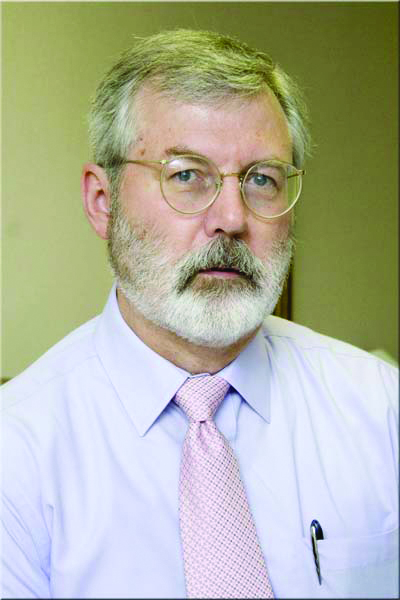Solutions Amidst the Opioid Epidemic

It takes a community coming together to help prevent and treat addictions.
Do we have a problem with opiate use? Ask anyone who attended one of the Peoria Public Library/Common Place-sponsored community dialogues last fall as part of the Mayor’s Community Coalition Against Heroin, and they would say yes. And this opinion agrees with the Centers for Disease Control and Prevention: opioid use is at epidemic proportions.
The CDC recently identified drug overdose (opioids) as one of the top seven health risks for 2017. It is believed that 78 people will die in this country every day from opioid overdose—and about half will be on doctor-prescribed opiate pain medication. In the past five years, Illinois experienced a 120-percent increase in the number of overdose deaths from synthetic opioids—behind only New York and Connecticut.
Reports from local hospitals, city and county fire departments, the Peoria Police Department and the Peoria County Sheriff’s Office all reinforce that opiate overdoses and deaths have been climbing. It is easy to point fingers—blaming the failure of individuals who are experiencing addiction; institutions who respond to or care for those who experience addiction; or the attitude that “it doesn’t affect me”—but none of that helps solve the problem. The ultimate question is: What can I do about it?
Venues of Discussion
The Mayor’s initiative provided the structure for numerous venues of discussion among people in law enforcement, the jail, county and federal court system, medical community, educational institutions, those in recovery, and many of us who didn’t know a lot about it before, but are learning. When asked, most acknowledged that they have been impacted, either directly or indirectly, by the increase in opiate use. These impacts include disruption in schools, declining workplace productivity, criminal activities by those who need to support their habits, and the loss of loved ones.
Addiction is a chronic illness that affects the brain chemistry. Though there are medications that can be of assistance to some individuals, there is no magic pill to fix people. Recovery is a slow, day-by-day, step-by-step challenge that is successful for some and not for others. It first involves identification and acceptance that there is a problem. For some, it involves medication and/or talk therapy; for others, it involves support and connection with family and others in the recovery community. And for some, it is all that and more—adjusted over time to meet what is right for each individual. Sometimes recovery is easy to figure out, but it often takes numerous attempts. Regardless of the severity of an addiction, recovery is possible for everyone.
It Takes a Community
So if we know there is a significant problem in this community, what can we do about it? Over the past 18 months, we have seen a growing interest in the medical community to educate/re-educate physicians about pain management and help individuals who have become addicted.
We have seen the criminal justice system develop federal and county specialty courts for cases in which it is determined an individual’s drug use contributed to their criminal behavior, providing the opportunity for rehabilitation in lieu of incarceration. For many who can abstain from drug use, their criminal behavior may also be eliminated.
We have seen an energized movement from the recovery community and families who have lost loved ones to addiction, reaching out to educate and be part of the solution for others who are struggling. Educating parents about the disposal of unused prescription medications so they are not available to children has proven to be one effective strategy to prevent the onset of drug use.
As individuals, we have options:
- We must guard our medications carefully, and properly dispose of them when they are no longer needed. (Some pharmacies and police stations accept old medications for disposal.)
- If you know someone who has been affected by addiction, listening and offering emotional support is very helpful.
- Become educated about addiction.
- If you suspect a problem, be willing to have the conversation with your children or loved ones. Simply stating “I love you, and I’m worried about you” is a good place to start.
- If you have someone in your family who is addicted, make sure to take care of yourself. Get support for yourself from family, friends, church or Families Anonymous.
We have recently seen the federal government begin to prioritize funds to support all kinds of initiatives to prevent and treat addictions. And finally, we have seen individuals and groups representing diverse interests come together to examine the issue of addiction—presenting a variety of perspectives, thinking through options (some costing money, and some not) and most importantly, asking what they can do to help improve the health of their community. If it comes up at work or church, after a ballgame, during a social event or anywhere else, commit to being part of the solution by being involved and contributing what you can. Community health is the responsibility of all of us to enjoy and share with others. iBi
Mike Kennedy is president and CEO of the Human Service Center. For more information, visit hscpeoria.org.

